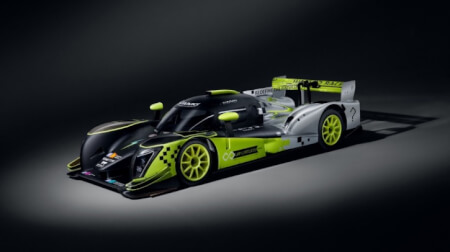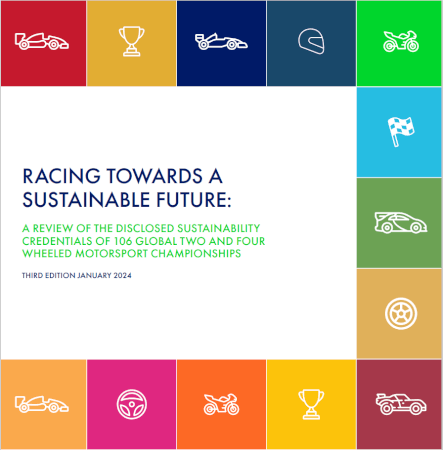December 7th 2022
Mazda MX-5 completes laps of UK race circuits using sustainable fuel
A standard production model Mazda MX-5 Roadster has completed benchmark lap times of race circuits all over the UK using a zero fossil fuel sustainable fuel from Coryton.
The unmodified 184ps 2.0-liter vehicle was powered by Coryton’s Sustain 100% sustainable fuel and completed laps of the Anglesey Circuit in Wales, Oulton Park in England, Knockhill in Scotland and Kirkistown in Northern Ireland over a one-week period. The MX-5 also drove between each circuit using the sustainable petrol.
Sustain is a second-generation fuel from Coryton and is produced using 100% agricultural waste, which includes straw, by-products and waste from crops which aren’t suitable for consumption. The test highlighted how sustainable fuels can be used to decarbonize both road-going and track-going vehicles.
Before completing the 1000-mile drive across the UK, the Mazda MX-5 drove from Coryton HQ in Essex via Motorsport UK’s headquarters in Bicester. Throughout the test the vehicle’s performance levels, fuel economy and engine characteristics remained unchanged, excluding the laps of each race circuit.
“We’re delighted to have worked with Mazda UK on this project, which combined a great car with sustainable fuel to lower more than just lap times,” explained David Richardson, director, Coryton. “As this challenge has shown, sustainable fuel is a real and credible player in our efforts toward net zero. It’s a solution that performs incredibly well, works with our existing vehicles and has the potential to significantly reduce the amount of CO2 we currently release compared to traditional fossil fuels.”
“We’re delighted to have worked with Mazda UK on this project, which combined a great car with sustainable fuel to lower more than just lap times,” explained David Richardson, director, Coryton. “As this challenge has shown, sustainable fuel is a real and credible player in our efforts toward net zero. It’s a solution that performs incredibly well, works with our existing vehicles and has the potential to significantly reduce the amount of CO2 we currently release compared to traditional fossil fuels.”
While the sustainable fuel is clearly capable of reducing emissions for road cars, the fuel can also be used at a motorsport level, where its future use is already under discussion. OEM Mazda worked with Motorsport UK who supported the completion of the laps on each circuit.
Mazda is also promoting the use of advanced second-generation biofuels within motorsport in a Mazda2 race car which competes in the Super Taikyu Endurance Series in Japan. The vehicle, which races in the ST-Q class – a class created for experimental or alternatively fueled cars – is powered by a 100% biodiesel made from used cooking oil and microalgae fats. The fuel is produced by Japanese company Euglena which aims to produce biodiesel commercially by 2025. The next-generation biodiesel is created using biomass such as plants and microalgae, and as these grow they absorb CO2 meaning the total amount of CO2 in the atmosphere is neutral when driving using the fuel.
Mazda is also promoting the use of advanced second-generation biofuels within motorsport in a Mazda2 race car which competes in the Super Taikyu Endurance Series in Japan. The vehicle, which races in the ST-Q class – a class created for experimental or alternatively fueled cars – is powered by a 100% biodiesel made from used cooking oil and microalgae fats. The fuel is produced by Japanese company Euglena which aims to produce biodiesel commercially by 2025. The next-generation biodiesel is created using biomass such as plants and microalgae, and as these grow they absorb CO2 meaning the total amount of CO2 in the atmosphere is neutral when driving using the fuel.
For the 2023 season the OEM is developing a new race car based on the Mazda3 model but with a more powerful engine, and the car will continue to use the same biodiesel during race events.
“This is a brilliant demonstration of how sustainable fuels can play a part in reducing automotive CO2 emissions if they became widely available,” said Jeremy Thomson, managing director, Mazda Motors UK. “It’s especially appropriate to highlight how they have the potential to make the enjoyment of driving sustainable whether on the road or on track for fun or in competition.”














